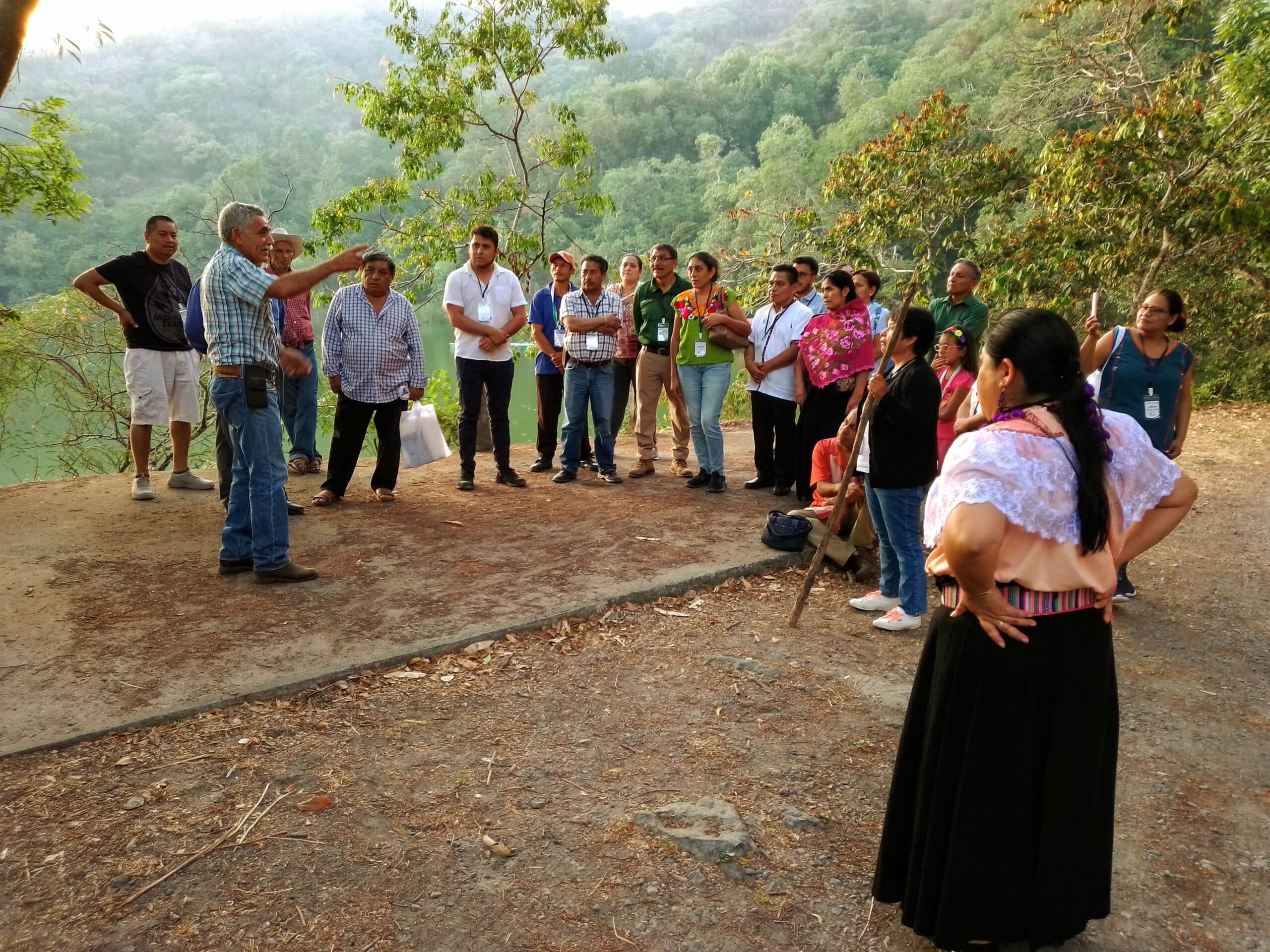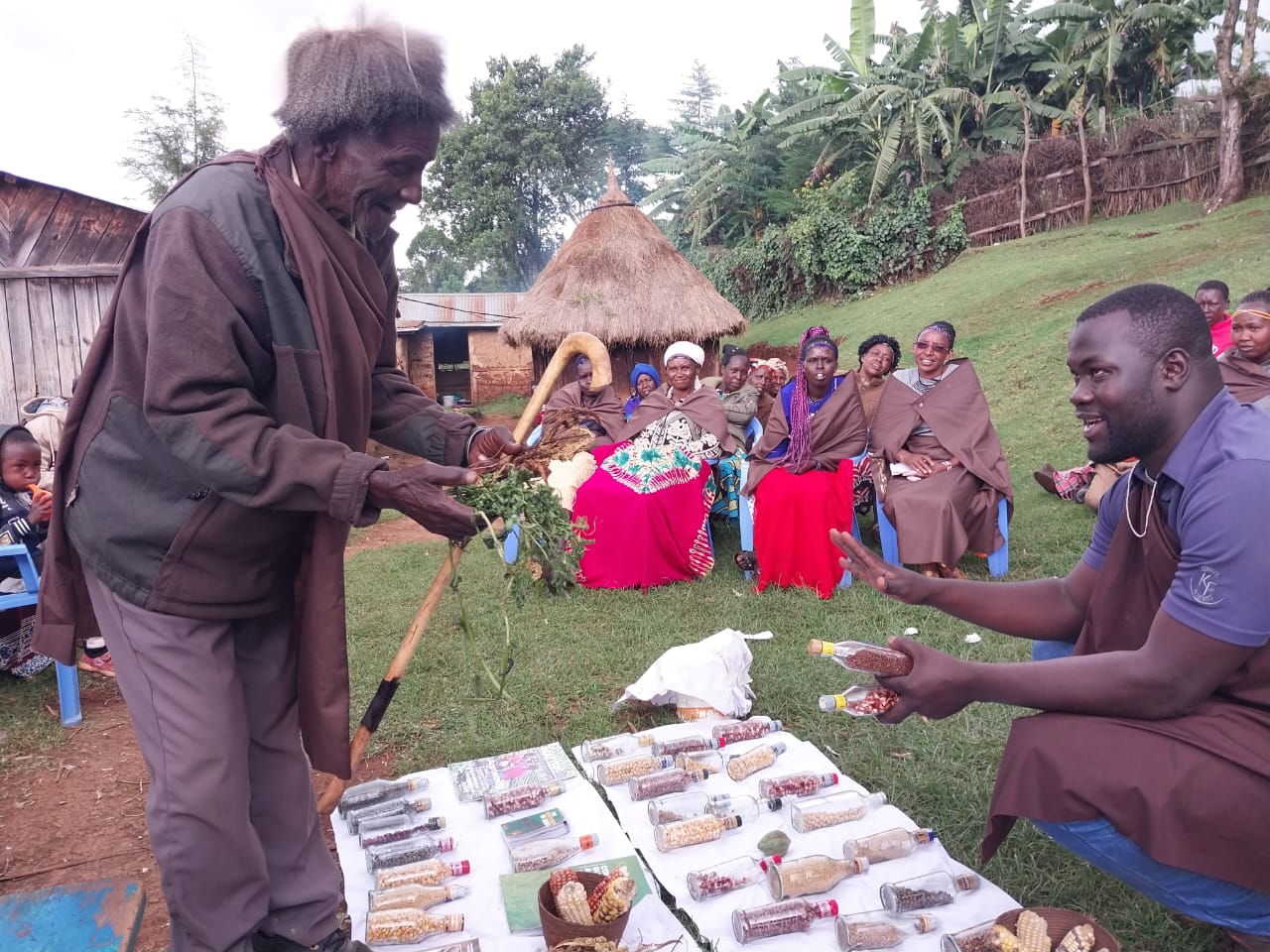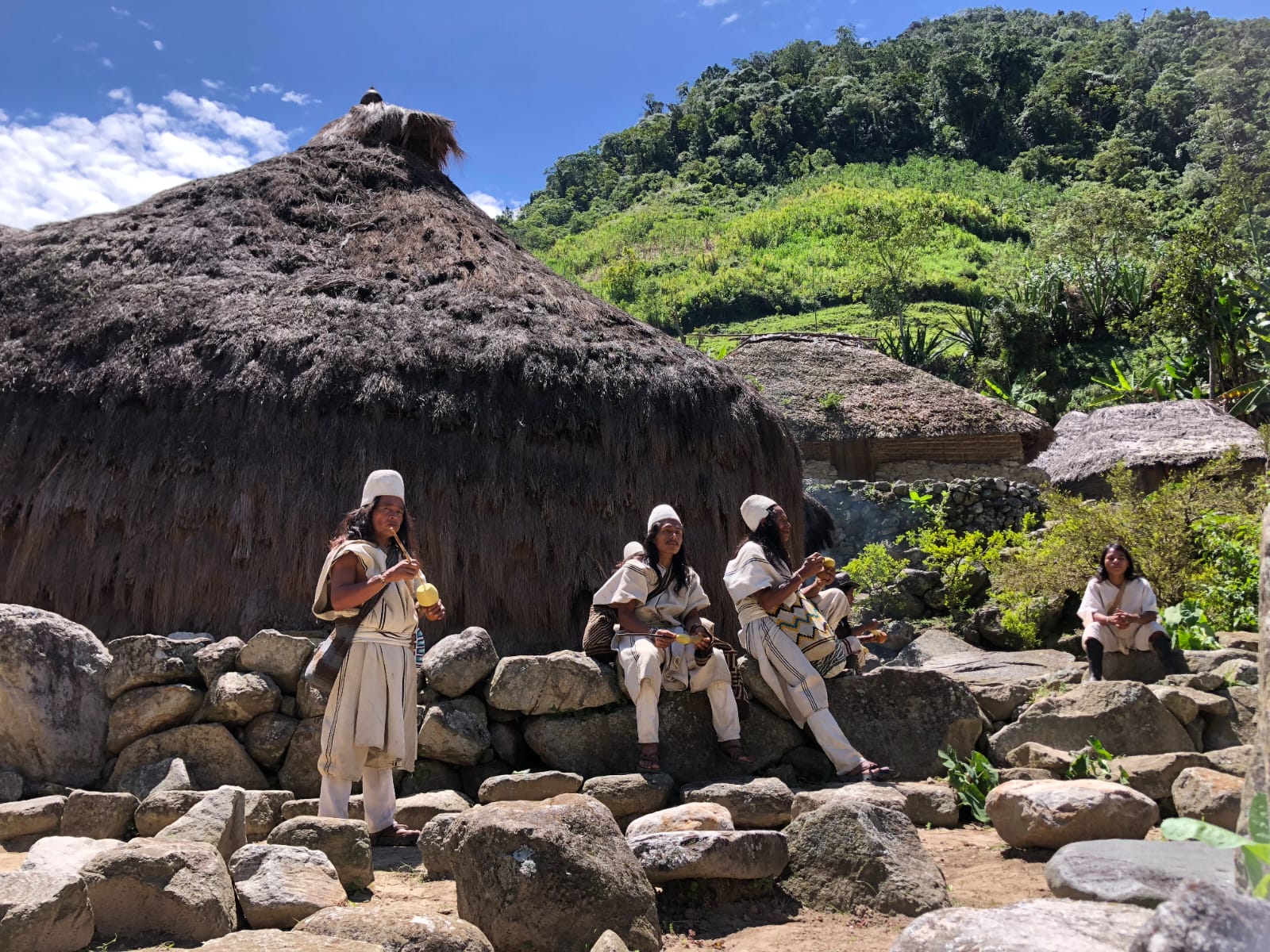Knowledge exchange and collaboration is one of the most effective and innovative ways we can support Indigenous peoples and their rights to self-determination. At Land is Life, we seek to empower our partners by providing inclusive methodologies that involve all members of a community.
On that note, we are excited to share a recently launched partnership with Ogiek Peoples’ Development Program in Kenya as part of our program for developing Free, Prior, and Informed Consent (FPIC) protocols with Indigenous communities.
FPIC is a necessary legal and political tool that promotes self-determination and enables Indigenous peoples to protect rights to their lands, territories, identity, cultural patrimony, and overall cosmovision. It is based on each community’s own norms, vision of development, and systems of communal decision-making and justice—all fundamental rights protected by ILO Convention 169 and the United Nations Declaration on the Rights of Indigenous Peoples.
FPIC protocols promote political participation and ensure that Indigenous peoples themselves are the first to decide on projects or other initiatives that may affect their territories and rights.
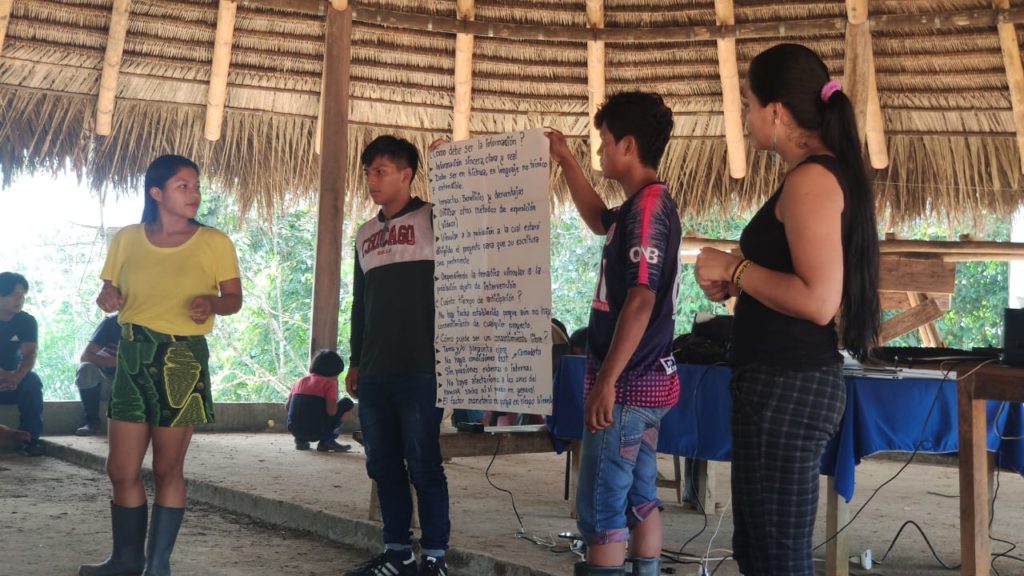
From Latin America to Africa
After a successful co-development process of FPIC protocols with the Kichwa Indigenous People of Sarayaku in the Ecuadorian Amazon, Land is Life has begun working with Ogiek Peoples’ Development Program (OPDP), an Indigenous grassroots partner based in Kenya, with the goal of jointly elaborating a protocol specific to the Ogiek Peoples.
The core of Land is Life’s unique and innovative approach on FPIC is based on the fact that the protocols are developed for and by the Indigenous communities themselves in an all-inclusive manner.
“For us, consent is an expression of self-determination,” explains David Suarez, Land is Life’s FPIC Program Coordinator. “It is not simply a process of consultation to say yes or no to a project, but a way of balancing the dialogue between Indigenous societies and states. It is the recognition of the right of Indigenous peoples to make their own decisions and generate through dialogues the exercise of consent. This in itself is a process of historical reparation of their condition of subjects as Indigenous peoples.”
The first phase of the initiative, led by the Kichwa Indigenous People of Sarayaku, took place over the course of eight months. The process involved the participation of all Sarayaku community members and included a series of in-depth interviews with authorities, political and spiritual leaders, as well as roundtable discussions with women and youth groups of the Sarayaku community.
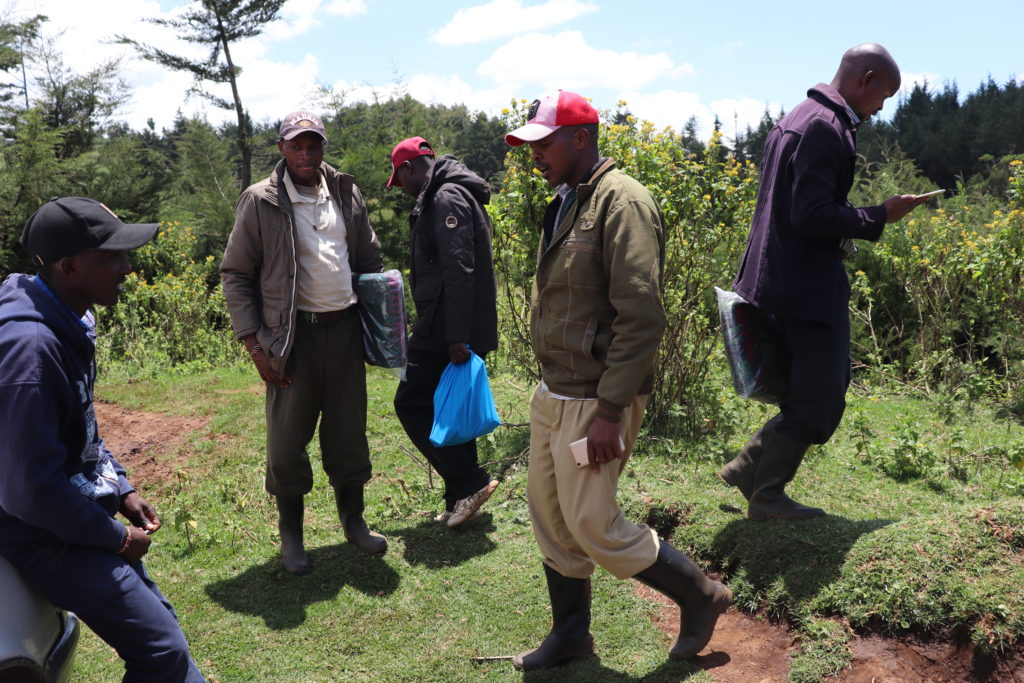
Process in Kenya
The Ogiek Peoples are one of the last groups of hunter-gatherers in Kenya and have a leading role as guardians of their local ecosystem, conserving and protecting land and natural resources in the Mau Forest.
The expansion of agricultural cultivation, logging, and charcoal production, among others, have disrupted the community’s peaceful existence in their ancestral land. Massive exploitation of their forest resources is often carried out without any prior consultation or participation of the directly affected population.
OPDP works to promote and advocate for the participation, self-determination, and human rights of the members of the Ogiek community for sustainable development. By increasing the Ogiek Peoples’ knowledge of FPIC, they will have the means to better defend their territories and rights from invasive practices and industries.
In August, the collaborative partnership kicked off for developing FPIC protocols for the Ogiek Peoples. This initiative is jointly designed and implemented by the teams of OPDP and Land is Life, which is providing technical expertise based on the mentioned successful experience among Indigenous peoples in Latin America.
Suarez has led two virtual workshops for OPDP as a first step to exchange experiences and understand the Ogiek Peoples’ current consultation and consent processes. During the second virtual session, Daniel Santi, member of the Governing Council of the Kichwa Indigenous People of Sarayaku, shared two of the main challenges faced during their process:
“We had trouble trying to decipher a way of obtaining consent from the protective beings that live in our territory. Many times, the State doesn’t understand the relationship we have with the Kawsak Sacha or Living Jungle,” Santi said. “Another great challenge was mobilization due to our geographic zone.”
On his behalf, Daniel Kobei, Executive Director of OPDP, acknowledged that “FPIC protocols will be an advocacy tool for the Ogiek Peoples’ negotiations, especially for their benefit when sharing their natural resources with others. Ours will be a very inclusive process where opinion leaders, women, and youths will be involved. We are pleased with the support of Land is Life and the guidance of the Kichwa Indigenous People of Sarayaku.”
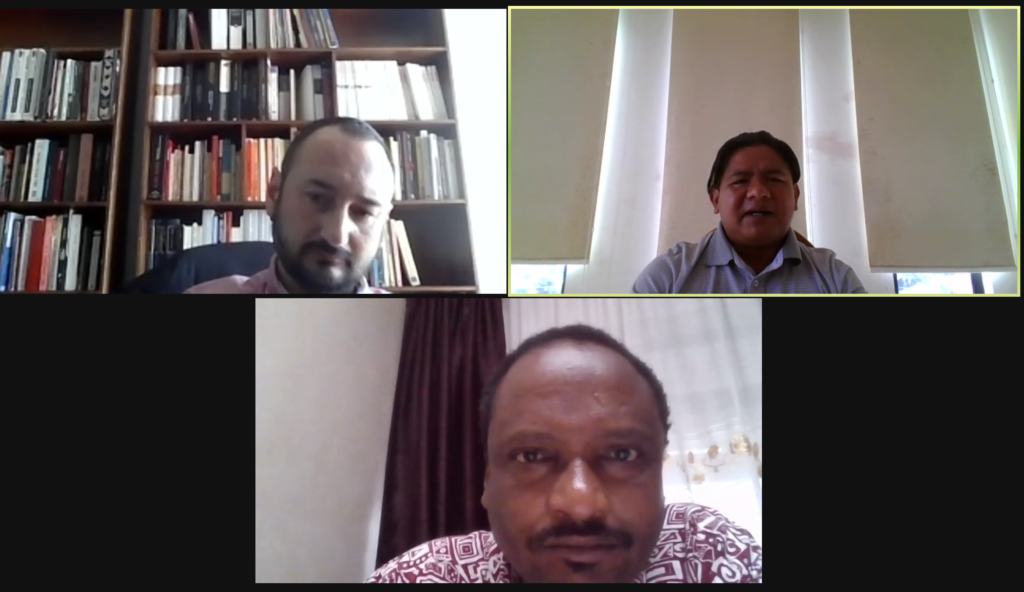
Top, left to right: David Suarez, Land is Life’s FPIC Program Coordinator and Daniel Santi, member of the Governing Council of the Kichwa Indigenous People of Sarayaku. Bottom: Daniel Kobei, Executive Director of OPDP.

